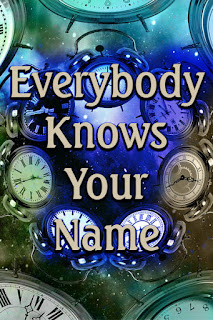I'm continually surprised that editors and agents in the publishing industry expect novelists to write short stuff, like query letters, outlines, and synopsis ... synopsis's ... synopsi? Just a sec.
(Huh. It's synopses. Who knew?)
Asking a novelist to write short is like asking a politician to spend less money; asking the Wicked Witch to be less cackle, um, cackle-y; asking me to skip dessert. My novel manuscripts tend to be short, but that doesn't make me freak out any less when I have to reduce it to a 1,000 word synopsis. My latest manuscript is 82,000 words: It's like taking a full size pickup truck and reducing it to Matchbox size with your bare hands.
 |
| Hey, I have this one! Wouldn't want to build the real thing from scratch. |
Now imagine someone trying to write a synopsis for one of George R.R. Martin's Song of Ice and Fire books, which are so big they're registered as lethal weapons. Seriously, even putting it on your Kindle adds two pounds. When I tried to read the newest one on the couch, I broke my hip. And the couch. Of course, no one would ask him to write a synopsis. In fact, he probably has an assistant that does nothing but write synopses ... seses ....
In theory the best way to write a synopsis is to write one paragraph for each chapter, then trim where necessary, as if it isn't going to be necessary. I tried other tactics. For instance, removing every "the"; putting into the synopsis only the third and fifteenth word of every page; and hiring George R.R. Martin's synopsis writer. None worked. (You wouldn't believe what that guy charges.)
So I looked the manuscript over again. While Martin's books are high fantasy, my newest story is apparently low fantasy, and yes, I'm aware of the possible jokes. That means it's set in our real world, but magical elements intrude into it; the best known example would probably by the Harry Potter series.
 |
| How low can you go? Well, you could have an entire school full of kids who could turn their parents into warthogs, for instance. |
My story, The Source Emerald, is about a young FBI agent on her first assignment, who tries to track down possible gem smugglers in upstate New York. Magic ... intrudes.
All I had to do is boil down her personality, the plot, the stakes, and the major supporting characters into 800-1000 words, or less than two pages. Or shorter, depending on who you ask. Oh, and in your own unique voice ... with plot twists ... and the ending ... I'm going to go lay down, now.
Okay, I'm back. Almost all authors hate writing a synopsis, and those who like it almost always turn out to be heavily addicted to something and/or certifiably insane. I don't have the exact statistics on that. All I know is that on my first whack at it, I spent half a page describing why my main character, Lilly, absolutely doesn't believe the little girl she encounters is Dorothy Gale, made famous in the Oz books. I had to reduce that to, like, four words.
 |
| "Dorothy is brunette, and a teenager, and not a princess, and it was all a dream, anyway. Stop pulling my leg--I've seen the movie." |
In the final version the whole thing boiled down to: "Lilly doubts Dorothy's story."
It took me three days to come up with that sentence.
In reality I got the whole synopsis done in "just" a few days, not counting my nightmares of being chased by an editor with a sharp red pen. My first version was about 3,500 words, which really wasn't too shabby. My second was around 1,500--I was slashing words like a horror movie villain.
And then--finally--920 beautiful, short, on-point words. That's it. If you want a shorter synopsis from me, I'll just cut from the bottom and you'll never know the ending, pal! (Or lady, since most of the agents and editors I've queried have been female.)
But I did it. I'm relieved, and proud, and surprised, but mostly relieved.
Now I have to write a query letter.
Hm ... or maybe I should tackle a short story. What do you think?
Find all our books here:
http://markrhunter.com/
https://www.amazon.com/-/e/B0058CL6OO
https://www.barnesandnoble.com/s/"Mark R
Hunter"










